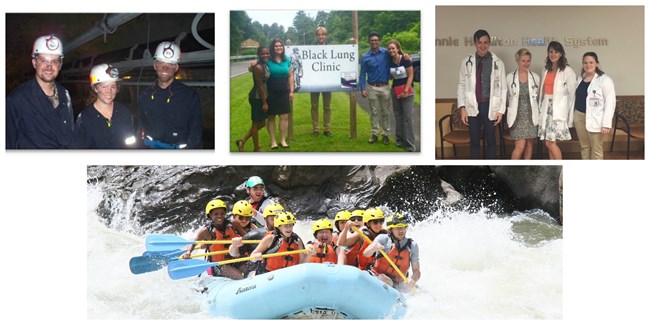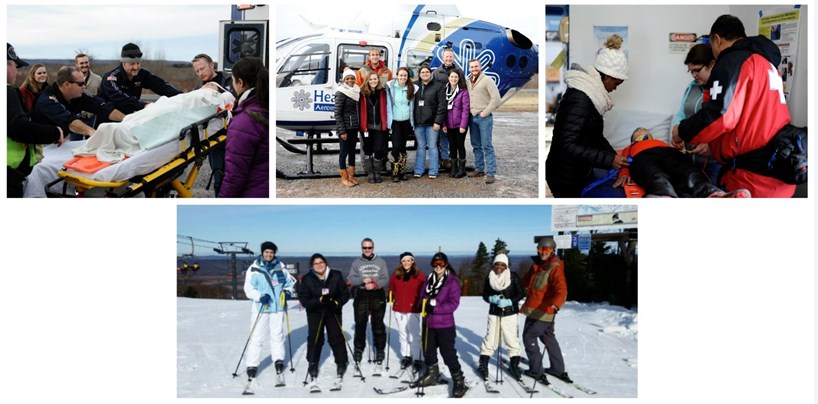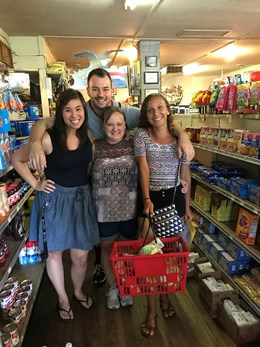Rural Immersion Field Trips
Southern West Virginia Rural Immersion
During the summer between 1st and 2nd year of medical school, Rural Track students participate in a Rural Immersion field trip with the support of the WVU Institute for Community and Rural Health. This is a week-long trip implemented to educate students about health issues specific to rural West Virginia. Various didactic sessions and experiential learning opportunities are presented.

Students are exposed to the geography, topography, and cultural context of communities in the small towns in southern West Virginia. Students will take part in visits to black lung and respiratory rehabilitation clinics, and participate in swift-water rescue training on the New River. There is also an opportunity to experience a trip into an active coal mine.
Winter Rural Immersion
Students spend a weekend at a ski resort in rural West Virginia. Students participate in a mock accident on the ski slopes, involving ski patrol, local EMS and HealthNet.

This trip focuses on learning about emergency treatment and rescue training in a rural area. Various didactic sessions are planned to discuss rural medical economics and the future of the healthcare landscape for the area.
Nutritional Rural Immersion
Rural Track Students travel to Pocahontas County, WV to participate in a Nutrition Rural Immersion trip with the support of the WVU Institute for Community and Rural Health.

During the trip, students will visit Cass, Greenbank, and Arbovale ,WV where they will learn basic dietetics, nutritional standards, and proper meal preparation techniques. This trip was implemented to educate students about health issues specific to rural West Virginia. Various didactic sessions and experiential learning opportunities are included in the immersion.
Students are challenged to purchase and prepare a meal from local stores based off a budget from the National SNAP Challenge. According to SNAP, low income Americans live on an average daily allowance of $4.40 per day. Each group was provided enough money to feed the entire group a healthy meal on a budget of $1.47 per person/per meal = $22.05 (15 people).
Students will be introduced to resources and skills helpful for improving their patients’ diets. The knowledge, skills and experiences students gained during the Nutrition Immersion will be beneficial for students as they advise patients on how to access supplemental nutrition resources and navigate food deserts.